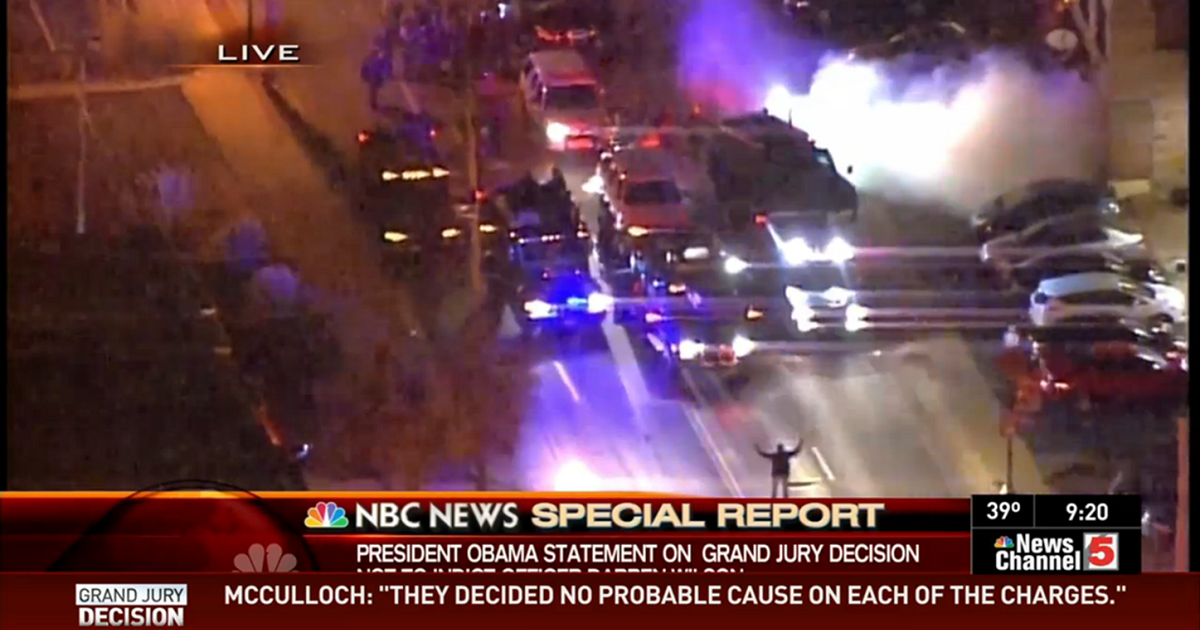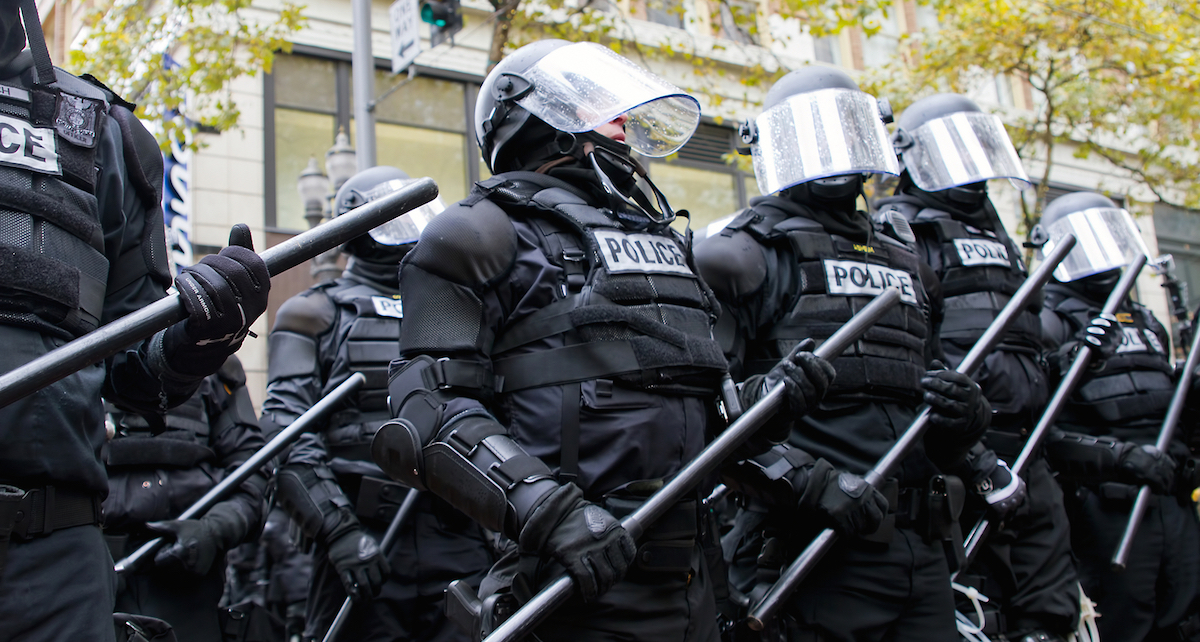Today's #Justice4All March Is Already Heating Up...
By:
Today, December 13th, a number of civil rights organizations will march on Washington, D.C., hoping to stoke the fires of change in the wake of the recent displays of police brutality that have shocked the nation into protest. Thousands have already turned out, with several tour buses unloading earlier, in support of the movement and the families of those killed.
It’s no surprise that the recent spate of police-related killings has stirred up some much-needed attention on the state of law enforcement in counties across the country. And following the failures of two separate grand juries to indict the officers involved, the stakes have been set high as the need to address an emerging, alarmingly similar trend grows in precedence day by day.
But as the fiery national debate centering on the intersection of police tactics, racial profiling, and the troubling recourse to non-accountability burns on, it’s necessarily headed somewhere. Along with retail workers and medical students, even Congressional staffers are staging walkouts in support. And from what we’ve seen so far, protesters won’t rest until they achieve something meaningful; after all, what else is the point of staging what are now global demonstrations that some have said already look like history in the making?
But where protesters should look for that agent of change is another question.
Lately, there has been a string of what seem like concrete steps taken towards improving police departments and mending the deep distrust of law enforcement felt by so many. On December 1st, the Obama administration announced that some $263 million in federal funding would be allocated for law enforcement agencies to purchase body cameras, revamp training efforts, and expand outreach programs. The plan also includes a task force meant to report back with sober reform recommendations.
This multifaceted approach aims to tackle a number of complaints against police in one fell swoop. According to a White House fact sheet detailing the program, around $75 million would go toward purchasing body cameras to secure accurate documentation in police interactions. Accountability via video evidence will be augmented with remaining funds going towards community outreach programs and revamped training programs to better instruct police handling of the surplus military equipment that has dominated the Ferguson experience.

Just this past Monday, the Obama administration also released an updated list of federal law enforcement guidelines that include bans on racial, national, or other characteristically motivated profiling. Although the new guidelines weren’t drafted in response to the recent events that they no doubt coincidentally address, the Justice Department hopes that they will serve as modicums of good policing at a time when the nation is deeply invested in the issues surrounding police profiling.
While these steps are indeed substantial, their airtight aspirations have already proven leaky. The presence of video footage and its potential for illuminating contentious encounters with police, for example, has been severely undercut with the case of Eric Garner, whose killing by way of an illegal chokehold was captured on film by a bystander. And as far as redoubled training efforts for police to use paramilitary gear responsibly, the effort implicitly sidesteps the continued existence of the Pentagon’s controversial 1033 exchange program, Obama’s inactivity in curbing it, and the fact that it’s extremely unlikely that reforming police militarization will secure a timely place on the legislative docket with just over two weeks left in the Congressional year. Finally, while revised rules for federal law enforcement set good examples, they stop there—the unfortunate nature of policing in this country is fiercely decentralized and resistant to top-down, federal control.
So where does that leave activists looking for sweeping shifts? One clear answer is the Justice Department. With their broad oversight and ability to conduct multiyear investigations into problem police departments and produce fruitful results, as evidenced in the Cleveland case, along with their standing to impose conditional clauses (policy reforms, say) for the billions of dollars in grants dolled out to various local and state criminal justice programs, the department has tangible clout.

But skeptics say there’s plenty of room for doubt when it comes to scope. Although DOJ police department investigations have typically been success stories, they are only eligible in the worst of cases, like Cleveland or Seattle. And given the 18,000 state and local police departments, all operating under differing guidelines, comprehensive review and reform seems like a distant possibility.
There could be a glint of hope, however, since the problems that can come with a potpourri of tactics and policies have been tragically underscored in cases like Michael Brown’s and Eric Garner’s. It’s also worth noting that the DOJ has opened a civil rights investigation of the Ferguson police, and is considering pursuing federal charges against the officer who killed Garner (although the threshold for federal indictment sits higher than it does at the state or local level).
In the meantime, it’s important not to lose sight of the momentum that has pervaded protests and coverage of these cases. This Saturday’s protest is likely to draw a lot of people and a lot of media attention. And if the messages are clear, there’s a chance to have a real impact. While sweeping, immediate reform is unlikely, small, thoughtful advances can be powerful; Rome wasn’t built in a day, the old adage goes. The Atlantic’s Citylab blog outlined some important steps we can take to lay the foundation of police reform, like bringing back FBI data on police-involved shootings, ramping up requirements for detailed local data on shootings, and re-thinking the use of grand juries.
2014 may be a year forever stained with the multiple deaths and the dubious, racially charged police tactics that held sway behind them. But it can also mark the beginning of reforming a juggernaut of a system, slowly bent out of shape over the years. There are serious blockades, but none that serious determination can't hurdle over.
